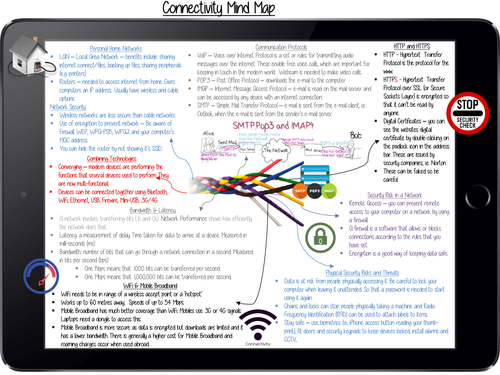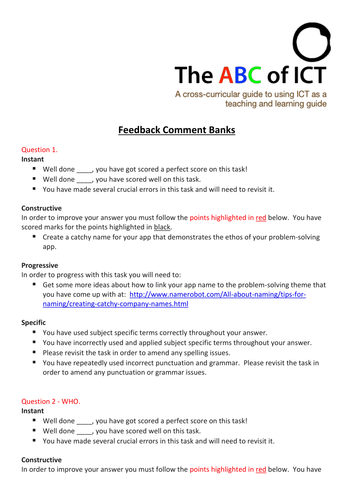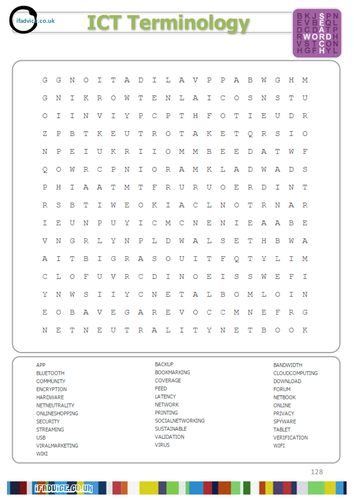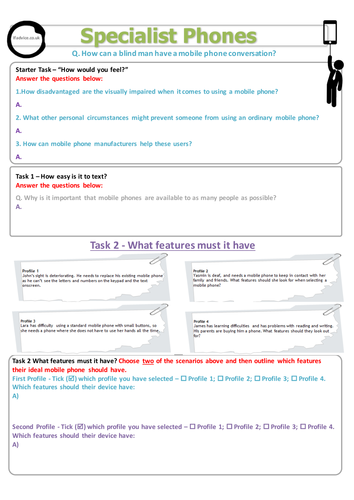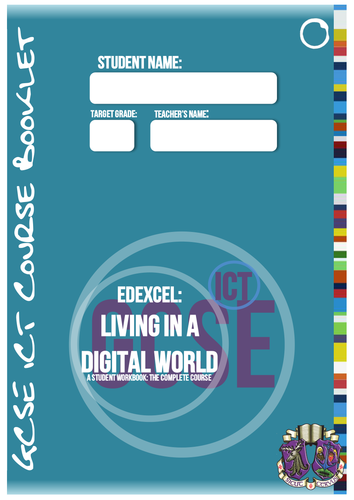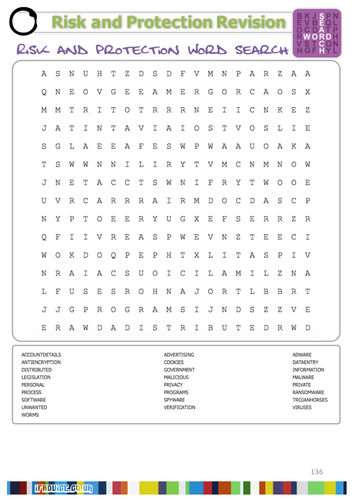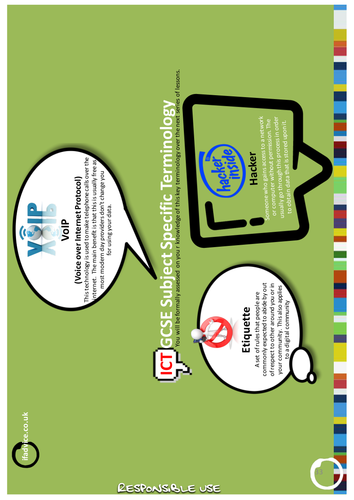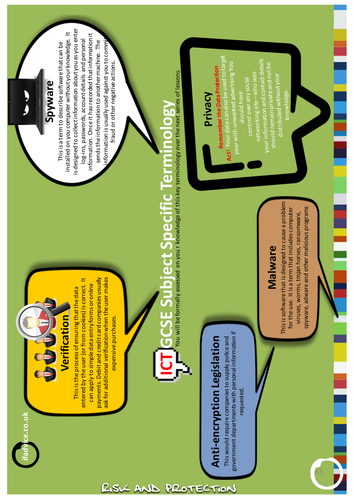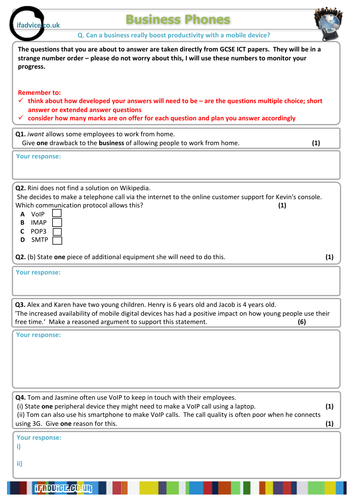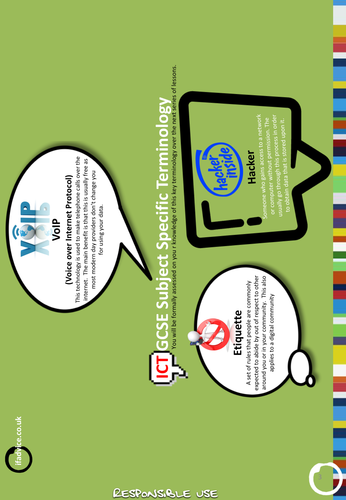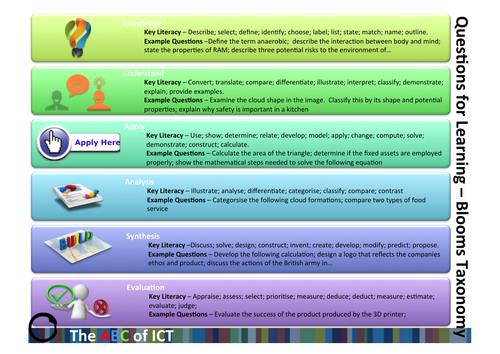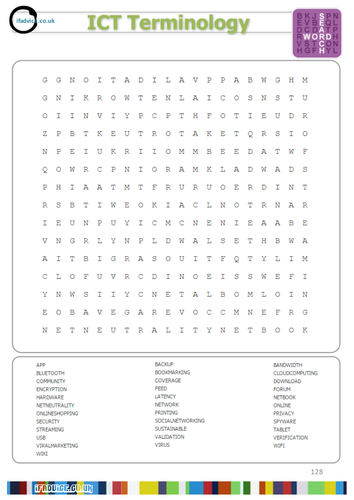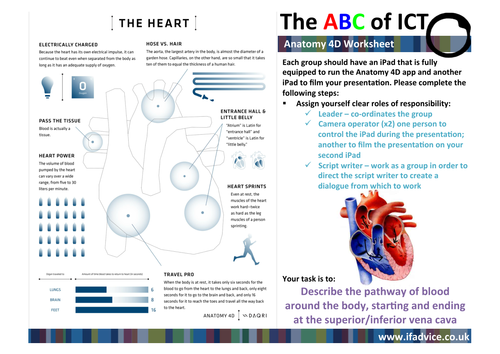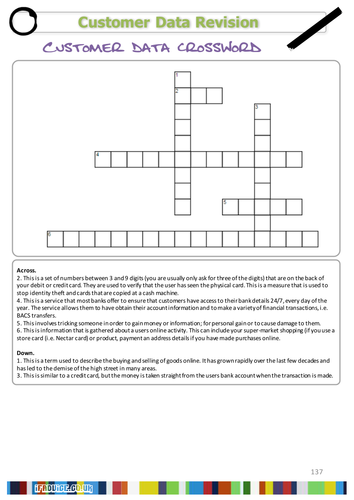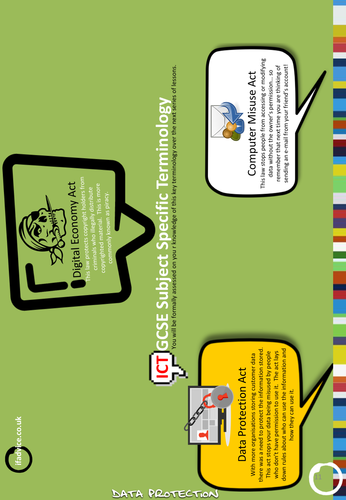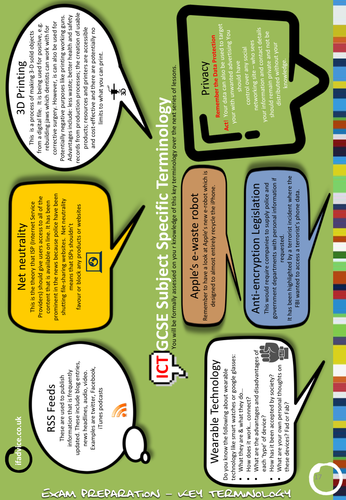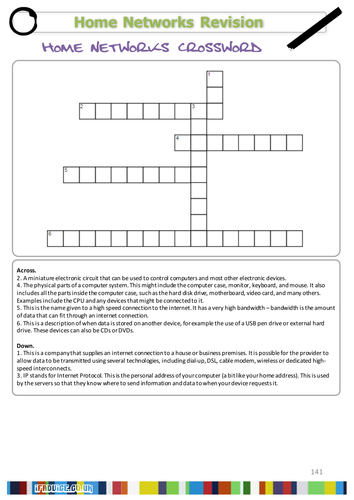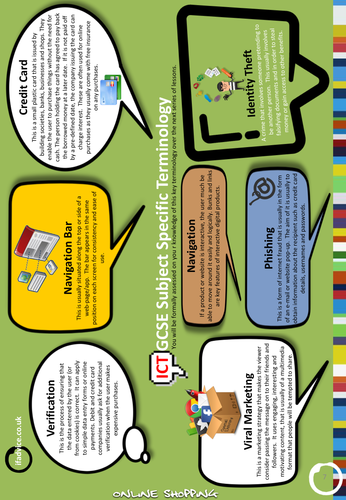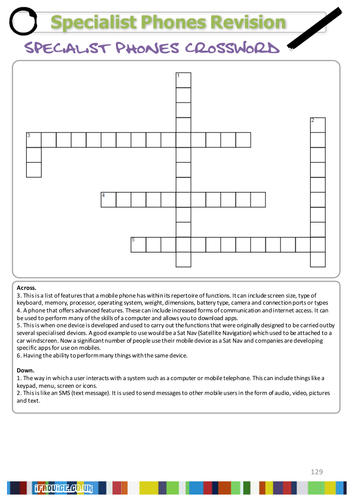
192Uploads
42k+Views
3k+Downloads
Computing

Edexcel GCSE ICT Theory Mind Maps
These resources are summary mind maps that can be used in isolation at the end of a topic or as a revision tool at the end of a course. They can be used appropriately as formative or summative activities.
Each mind map has associated past paper questions and questions taken from, or inspired by the course workbooks and revision guide. I have confirmed with Pearson that i have permission to share these resources with other teachers and students.
The topics include: Personal Digital Devices, Connectivity, Operating Online, Online Communities, Online Goods and Services & Issues.
I tend to use these resources for group work tasks where students get a series of points for the methods that they have used to work out the answers.
Please note that these resource do not have the questions attached that feature in the other, similarly named document that I have uploaded here. They are stored in the form of a jpg.

Feedback comment banks for marking
According to Professor John Hattie, feedback has the biggest impact on learning. However, the written feedback that we provide is often rushed (in a bid to finish marking that pile of books!) It is also a common trait that we don’t teach our students how to use the feedback that we provide. So with this method, I tend to concentrate on writing quality feedback and at the start of the year, following my first written feedback, we work on how to use this information to inform and progress our learning. As a result, this is a document type that I use on a daily basis in school. The concept involves writing a set of statements that can be used to feedback on a piece of work. I tend to write the statements/comments at the same time as I write each of the tasks as this allows me to think of all of the possible outcomes that a student will produce.
The feedback for each task is provided in four ways:
Instant: this is the feedback that the students look for straight away. It very quickly establishing ‘how well’ they have done/
Constructive: this part of the feedback outlines exactly what the student has done well and what they need to develop. I simply ‘copy and paste’ the whole statement into the feedback box and colour code it appropriately. Students are now used to looking into this section in order to ascertain the specifics of where they have achieved/no achieved.
Progressive: this is essentially an extension task for the student to follow. I often differentiate these pase on the ‘Constructive’ section. It takes the form of a link to a website; a video lecture or an activity. Sometimes these are assessed online - i.e. a Moodle Quiz or Educanon Assessment.
Specific: this section focuses on the school or subject priority. For example, Literacy is high profile in our school environment so I will often tailor comments in this section to be around Literacy and quality of written answers.

Edexcel GCSE ICT Teaching Block One Worksheets
These worksheets cover the topics: specialist phones; connections; mobile phone usage (x2); responsible use; security; business phones and a summative lesson.
I can supply accompanying PowerPoints on request free of charge, but I don't want to put these up here as I have worked on producing them with my colleague.
These worksheets can be used as teaching and learning resources of as revision activities with individuals, small and large groups - targeting misconceptions through appropriate intervention.

Edexcel GCSE ICT Course Booklet v1.0
This course booklet contains all of the:
- worksheets
- chunking/terminology activities for each lesson
- homework's
- associated mind map and revision activities
I issue each student that I teach with this booklet and we work through it with the associated PowerPoints.
The booklet starts with a specification checklist and a PLC activity for each unit of work.
Each lesson starts with the associated chunking/terminology and then features lesson content and an associated home task (past paper of exam-style questions). I work through these one lesson at a time and test the terminology/chunking knowledge in the next lesson (usually a practical or CAB lesson).
At the completion of each teaching block, student create their own mind map.
At the end of the course are some revision activities and high quality mind maps.
This is the complete document for teaching the Edexcel GCSE ICT theory components.

Edexcel GCSE ICT - Responsible Use
This series of resources is aimed at being delivered over a series of 2-3 lessons. In the first lesson I go through the lesson content and provide students with the chunking words for the lesson and the associated 'exam questions' for homework.
Chunking section - this is a selection of 3-7 words is subject specific terminology that I assess in a range of different ways: spelling tests; word searches; crosswords; online quizzes; diagnostic questions etc. The idea being that students can learn and retain a small number of words/meanings or data at any one time. This is based on the educational research concept of: Herbert Simon http://www.human-memory.net/types_short.html
Lesson content - This worksheets covers the topic: Responsible Use. I can supply accompanying PowerPoints on request free of charge, but I don't want to put these up here as I have worked on producing them with my colleague. This package of work and worksheets can be used as teaching and learning resources of as revision activities with individuals, small and large groups - targeting misconceptions through appropriate intervention.
Homework - the homework is based on examination questions from past paper exam and the course revision book. The questions are used with permission from Edexcel and Pearson. At the foot of each homework is the opportunity to feedback to the students in the form of percentage achieved, grade (in relation to target grade) and written feedback. I set a 'MAD (Make A Difference) Time' activity for each piece of work in the form of an intervention or extension task.

Edexcel GCSE ICT - Risk and Protection
This series of resources is aimed at being delivered over a series of 2-3 lessons. In the first lesson I go through the lesson content and provide students with the chunking words for the lesson and the associated 'exam questions' for homework.
Chunking section - this is a selection of 3-7 words is subject specific terminology that I assess in a range of different ways: spelling tests; word searches; crosswords; online quizzes; diagnostic questions etc. The idea being that students can learn and retain a small number of words/meanings or data at any one time. This is based on the educational research concept of: Herbert Simon http://www.human-memory.net/types_short.html
Lesson content - This worksheets covers the topic: Risk and Protection. I can supply accompanying PowerPoints on request free of charge, but I don't want to put these up here as I have worked on producing them with my colleague. This package of work and worksheets can be used as teaching and learning resources of as revision activities with individuals, small and large groups - targeting misconceptions through appropriate intervention.
Homework - the homework is based on examination questions from past paper exam and the course revision book. The questions are used with permission from Edexcel and Pearson. At the foot of each homework is the opportunity to feedback to the students in the form of percentage achieved, grade (in relation to target grade) and written feedback. I set a 'MAD (Make A Difference) Time' activity for each piece of work in the form of an intervention or extension task.

GCSE ICT Key Terminology Poster 3
GCSE ICT Key Terminology Poster 3 - used around the classroom to help students learn the key terminology related to each topic covered.

Questions for learning - Bloom's Taxonomy
Questions for learning - Bloom's Taxonomy starter sentences, keywords and suggested questions.

GCSE ICT Key Terminology Poster 11
GCSE ICT Key Terminology Poster 11 - used around the classroom to help students learn the key terminology related to each topic covered.

GCSE ICT Key Terminology Poster 17
GCSE ICT Key Terminology Poster 17 - used around the classroom to help students learn the key terminology related to each topic covered.

GCSE ICT Key Terminology Poster 7
GCSE ICT Key Terminology Poster 7 - used around the classroom to help students learn the key terminology related to each topic covered.

